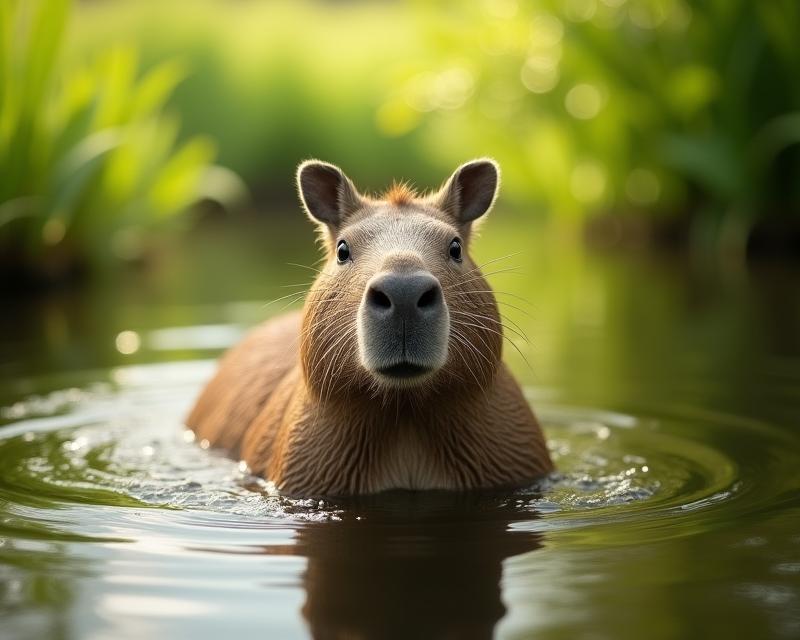Capybara Health: What Owners Need to Know
Publish in Health el 29/06/2025 16:45
Capybara Health: What Owners Need to Know
Capybaras are fascinating and social animals, making wonderful companions for experienced pet owners. However, like any pet, they are prone to certain health issues. Understanding these potential problems and how to prevent them is crucial for ensuring a long and happy life for your capybara. This article will cover some common health concerns and offer practical tips for keeping your capybara healthy and thriving.

Common Health Issues
One of the most prevalent health concerns in capybaras is dental disease. Their teeth continuously grow, and without proper wear and tear from chewing, they can develop overgrown teeth, leading to malocclusion (misalignment) and difficulty eating. Obesity is another significant risk factor, often stemming from an overabundance of treats or a lack of exercise. This can lead to joint problems, heart disease, and other serious health complications. Skin issues, such as parasites and fungal infections, can also occur, especially in humid environments. Finally, capybaras are susceptible to gastrointestinal problems, including bloat and impaction, often linked to diet and stress.
Prevention is Key
Fortunately, many health problems can be prevented with proactive care. A balanced diet is paramount. Provide a diet rich in grasses, hay, and vegetables, with limited amounts of fruits and treats. Ensure your capybara has access to plenty of fresh water at all times. Regular dental checkups are essential. This can involve providing appropriate chew toys like logs and branches to help wear down their teeth naturally. Regular exercise is also vital for maintaining a healthy weight and overall well-being. Provide a spacious enclosure with opportunities for swimming and exploring. Monitor your capybara's weight and adjust their diet accordingly. Keep an eye out for any signs of parasites, such as excessive scratching or hair loss, and consult a veterinarian promptly if you notice anything unusual. Stress can significantly impact a capybara's health, so providing a stable and enriching environment is crucial. Ensure they have adequate social interaction and a safe, comfortable space to retreat to when needed.
When to See a Vet
It's important to establish a relationship with a veterinarian experienced in treating exotic animals. Regular checkups can help detect potential problems early on. Contact your vet immediately if you observe any of the following:
- Loss of appetite
- Lethargy
- Changes in droppings (diarrhea or constipation)
- Swelling or lumps
- Difficulty breathing
- Excessive drooling
Early intervention is key to successful treatment. By being vigilant and proactive about your capybara's health, you can help ensure they live a long, healthy, and fulfilling life.





